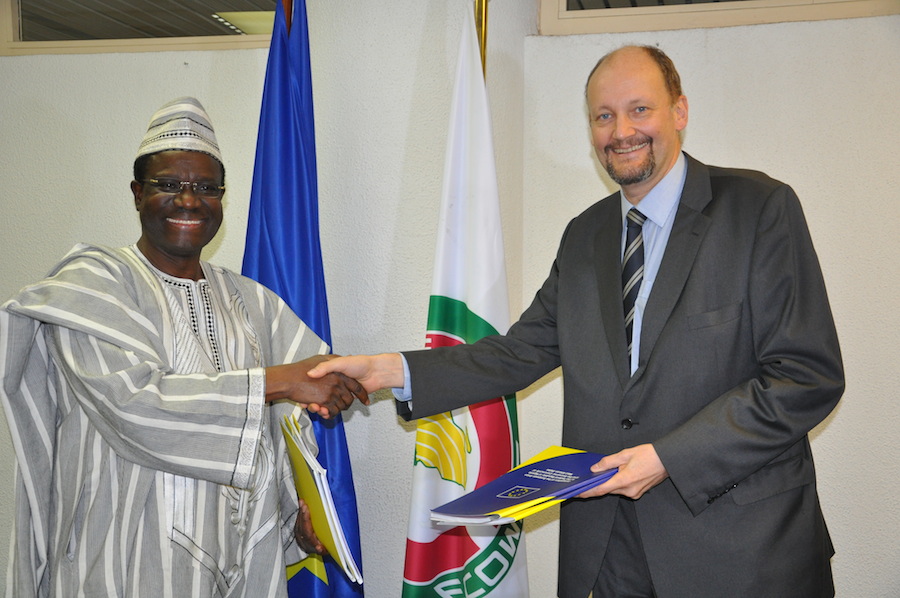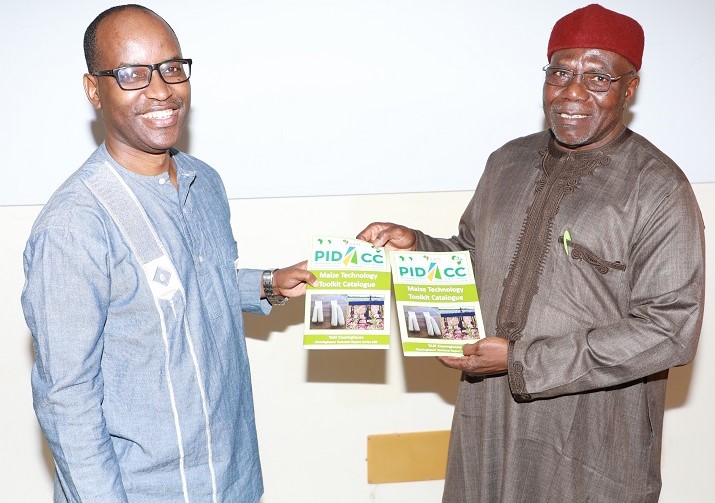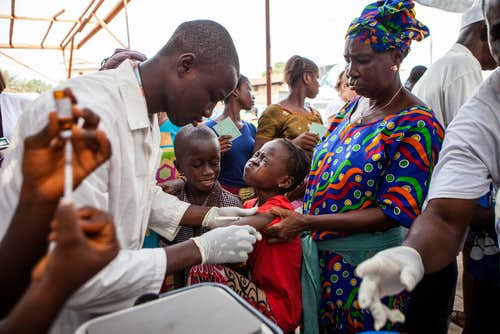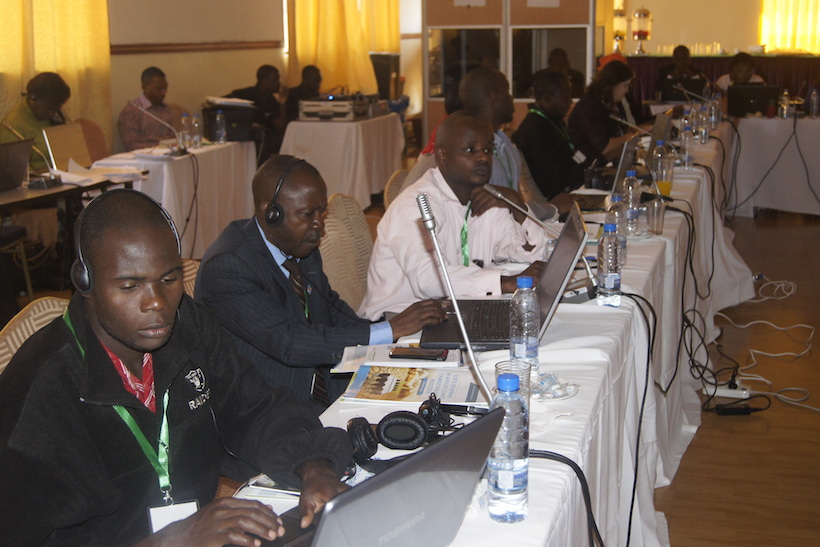
By Greg Odogwu
The European Union Climate Diplomacy Day, which takes place annually on June 17th to highlight the positive climate action that is being taken around the globe in collaboration with the EU and its Member States, is a great initiative.
During this year’s edition, a couple of weeks ago, the European Union marked the day with series of events throughout the world to raise awareness of the threat from climate change, and stress the importance of reaching a new climate agreement at the United Nations Climate Conference in Paris this December, one which will limit any global temperature rise to 2°C and avoid potentially disastrous man-made impacts on our climate.
Nigeria was not left out. At the event in Abuja, it was all glitz and thrills as attendees were treated to gripping short videos depicting the reality of a warming planet and the place of the developing world in the heartrending matrix.
But the welcome address of EU’s head of delegation at the event was more interesting to this writer than the sobering videos because it contained an idiomatic concept that keeps popping up when climate change is discussed all over the world. The expression in question is “elephant in the room” which is used to describe an issue that is so visible (just like an elephant in a room) yet carefully ignored and treated circumspectly by all and sundry.
In this sense climate change should be an elephant in the room because it is so momentous yet so divisive. And, interestingly, just like an elephant, climate change has so many components that are in themselves controversial and humongous. In fact, the expression, “the elephant in the room” has become so used in climate matters that I once jokingly opined that perhaps the United Nations should consider using the image of an elephant as a representation of climate change.
Yes, it has many parts that could become symbols and living entities in their own rights. Is it Green Climate Fund; is it politics of the haves and the have not’s (i.e. LDCs or less developed countries affair); is it mitigation and its sister adaptation; is it the COPs and the grueling committee meetings? You name them, climate change has them.
Just after last month’s Bonn climate negotiations, it came out that the UNFCCC negotiations disappointed civil society organisations. While we have seen positive movements around the Green Climate Fund, there is still a lack of clarity around the various elements that will make long-term climate finance both operational and effective. Looking towards a climate deal in Paris therefore, it was clear in Bonn that climate finance was the elephant in the room. Through mentioning the various terms – ‘means of implementation’, ‘support’, ‘funding’- it is clear that developed countries are still not willing to commit the much needed finance to complete this climate agreement.
The touchy balance between adaptation and mitigation gauges has kept everybody circling the concept of finance. Adaptation has been left out in the cold when it comes to financing climate action. It was asserted in Bonn that only 8-9% of all climate finance goes to adaptation. Civil society has been calling for a 50/50 balance between climate mitigation and adaptation through existing funding streams.
Developed countries continue to speak about private sector finance more and more, particularly as they are not meeting commitments to funds pledged in 2009. Despite the private sector being looked at as the key to unlocking high amounts of money, NGOs still demand that public finance should be the cornerstone of climate finance, particularly for adaptation.
On another forum, the politician turned climate activist, former American Vice President Al Gore harped on the same elephant. Asked to characterize the state of the global conversation on carbon pollution, Gore said it is “too frequently like a family with an alcoholic father who flies into a rage every time alcohol is mentioned.” So the family learns to keep the peace by “never mentioning the elephant in the room.”
Now back to the Abuja event. After EU Ambassador to Nigeria, Michel Arion, welcomed guests and made his first point from his prepared speech; he proceeded, “Second, let’s talk about the elephant in the room. There are some who say this talk about climate change is all a plot to stop us – that is us in Africa – from growing.
But look at Europe. Between 1990 and 2013 Europe has grown by 45% but its greenhouse emissions have declined by 19%. Growth has been possible with less emission. Reducing poverty, improving people’s lives, growing your economy will not be affected by taking action to reduce greenhouse emissions. We can become better off and save our planet. And how do we square this circle – we are and can use technology. Technological advances are reducing the costs of renewable energy. If the trend continues wind and solar will soon be cheaper than coal.”
This is the elephant in the room that I am tempted to touch! There is phobia in some quarters about the intention of the developed world regarding climate change. But for such folk, the evidence is so real and undeniable. The fight against climate change could bring us out of poverty faster than any other linear development paradigm. Ask the rural women that now use clean cook stoves with zero health hazards. Ask the school children who can now browse the internet in a cyber cafe powered by solar panels. Ask the green artisans sprouting from the deepest recesses of Africa.
Moreover, Europe and Africa have a long history of cooperation on climate action. In April 2014, during the fourth EU-Africa Summit in Brussels, governments from both continents agreed to “achieve common positions in global forums and international negotiations, and jointly address global challenges such as climate change.” And four years ago during COP17 in Durban, South Africa, Europe and Africa formed an alliance to put pressure on countries unwilling to enter into negotiations for a post-2020 agreement.
On the sidelines of the 2014 EU-Africa Summit, African and European environmental and climate leaders stated that the 2015 agreement should be legally binding as well as “fair, balanced, equitable and ambitious.” This is in contrast to the US position that would prefer only “some elements to be legally binding.”
In all, my take is that the real elephant in the room is “the will to cooperate”. I have been present in a couple of such high powered climate negotiations and realised that the idea of one global village shall not truly make meaning until we agree to work together for global survival irrespective of national loyalty.
Cooperation no doubt is epitomised in the fact that European nations are tied together in a living organism called EU, and could teach us in Africa that we need a singular voice “from the poor”. And this, surely, would easily authenticate our demands and speed up multilateral platforms.
Some years ago, I began calling for genuine, fair, equitable cooperation among countries in the fight against climate change. I was able to recommend that instead of shifting the whole burden to one belt of the planet, the entire nations of the world should contribute as per individual strength. I liked to visualise the scenario from Igbo folklore where the animal kingdom was told to gather fodder for a communal bonfire; and the instruction was sonorous and practical: “Big animal fetch big firewood; small animal fetch small firewood!”
This vision has manifested in what we know today as the Intended Nationally Determined Contributions, a country by country pledge at cutting emissions.












